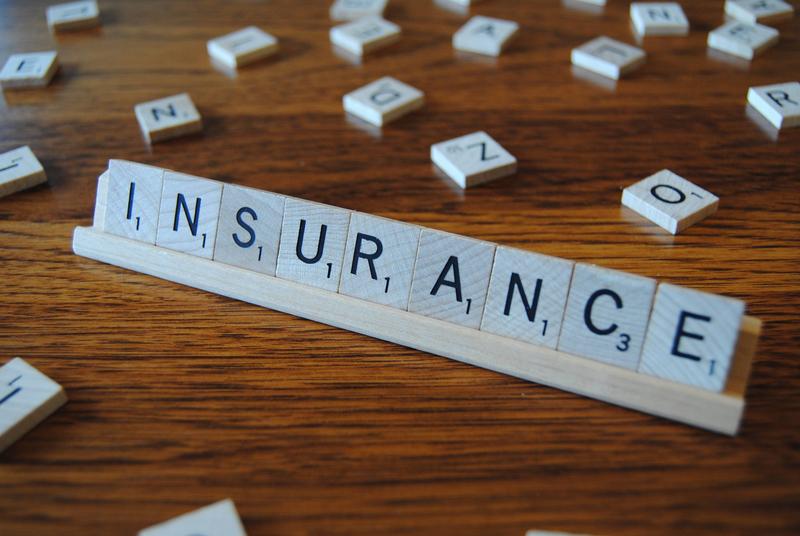7 Things You Should Know Before Buying Medical Insurance For Yourself
Everyone needs a giant invisible umbrella in preparation for a rainy day.
Life insurance, health or medical insurance, personal accident insurance - these are just some of the many insurance policies that you can get to protect you and your family on a rainy day
Of all these, health or medical insurance is a must-have policy in any individual portfolio, as it works to cover the cost of your medical and surgical treatments especially since healthcare expenses are steadily increasing as of late
Medical and health insurance, which have been available in Malaysia since the 1970s, has become a necessity in recent years as many Malaysians are opting for private healthcare for quicker service and better options instead of the government's general hospitals.
Unfortunately, private clinics and hospitals don't come cheap. Hence, it makes sense to invest in health insurance for financial cover in case of future maladies that incur heavy medical expenses.
So, if you haven't bought health insurance for yourself already, now may be a good time to do so! Here are some things to take note of so that you're getting the health insurance policy you need:
1. First, you will need to identify the type of health insurance that is suitable for you. Although there are several types of medical policies, a basic coverage e.g. a health or medical card is probably already sufficient for your needs.
There are four major types of medical policies:
i. Medical/health card, which covers hospitalisation and surgical benefits;
ii. Critical illness or dread diseases insurance, which provides a lump sum benefit;
iii. Disability income insurance, which provides a stream of income when you are unable to work; and
iv. Hospital income insurance, which provides a specified sum of money on a daily, weekly, or monthly basis if you are being treated in a hospital.
While having all four types is recommended to ensure better protection, it can be quite costly for some of us. The good news is, you can simply opt for a basic coverage i.e. a medical card if you are in the Low Risk age category and leading a Low Risk lifestyle.
Typically, a medical card provides allowance for hospitalisation in a panel hospital specified by the insurance company, treatment, surgery, and even ICU. Some policies also provide insurance on death of total permanent disability, accidental death, and disablement as well.
2. You don't want to overpay for a policy that excessively covers or worse, covers the benefits you don't even need! Do your research and don't be afraid to seek assistance from experts in the field so that you get a plan that suits your needs AND your budget.
No one knows the nitty gritty details of insurance policies that the experts a.k.a. the agents selling them. You can never ask too much about anything, especially since this involves your money and your future wellbeing. It pays to get as much information as possible on the different plans out there so that you don't end up with a policy that excessively covers or insufficiently covers you.
Health insurance does not have to be expensive. Ideally, you should be paying not more than 1.5% of your monthly income on your insurance premium.
3. Different insurance companies offer different plans with varying terms and benefits. Some questions to ask before settling on a particular policy include:
i. How long is the policy contract active for?
ii. What are the definitions and limitations to payment of benefits? There are two types of limits you need to keep tabs of - the annual limit, and the lifetime limit. Both dictate how much you are entitled to claim yearly and throughout your lifetime respectively.
iii. Do you have to settle your medical bills upfront and then submit medical receipts for reimbursement, or will showing your medical card take care of everything?
iv. Are you allowed to "top up" with coverage from another health insurance if this one does not fully cover your healthcare expenses in a particular situation?
v. Are you insured if you are hospitalised outside of Malaysia? This is especially essential for those who frequently travel overseas for business or leisure.
vi. What happens if you are admitted to a non-panel hospital?
vii. How are the premium payments calculated? Typically, the insurance company will take into account your occupation (based on risk levels), age, gender, and overall health before quoting a premium amount.
viii. How soon after buying a plan can you start claiming benefits? Some policies implement a 30-day "cooling off" period right at the start of your coverage where you are not allowed to make any claims whatsoever.
ix. How soon after a claim can you claim again?
x. Does the policy have guaranteed renewability? This is to ensure that protection is available throughout and premiums are maintained despite recent diagnosis of illness.
xi. What could cause your medical claims to be rejected? Common factors include claims within the first 30 days of your coverage, exclusion clauses, unpaid premiums, and exceeding your policy limits.
4. Do take note that there may be factors that can affect your eligibility for an insurance policy, such as your age and the presence of any pre-existing medical conditions
Anyone who is above the age of 60 may find it difficult to get an insurance plan, although that is dependent on the type one is interested in. Those who have pre-existing health problems should also be prepared for the possibility that it will likely not be covered by any future coverage.
5. Health insurances usually only cover conditions where medical attention is absolutely necessary. Hence, things that are likely not covered in many policies could include plastic surgery, dental care, and claims made while breaking the law.
There could be exceptions when it comes to dental care, such as surgery for major medical conditions such as an infected wisdom tooth or serious gum disease. However, some medical policies outright excludes dental care so to be 100% sure, do ask your insurance agent.
As for "claims made while breaking the law", it goes without saying that no insurance company will be willing to cover treatments incurred from, say, being shot by the cops while robbing the bank!
6. Should you buy more than one health insurance policy? Cost factors aside, there are instances where having more than one medical insurance policy could be a good thing in the long run, such as:
2. As a "top-up" for when one policy's limit is not enough to cover your medical bill. Note that this is subject to both insurance policies' rules and requirements.
3. As an addition to the one already provided by your employers, as the medical insurance you get from many workplaces are usually basic policies with low limits. Plus, you will no longer be covered the moment you leave your company, so taking out a personal policy ensures you are covered no matter where you work.
7. Some insurance companies offer a "free look period" or a 2-week trial period. Take advantage of this to read through your selected policy thoroughly and review if you can maintain the plan for the duration of the contract.
Ensure that you are financially able to support yourself, your lifestyle and your insurance plan. Insurance products are long-term commitments. Backing out early or halfway would be a waste of your money. You probably would’ve invested more money in the policy than what the insurance company has given to you.
Make use of the free look period to cancel the policy without incurring any cost if the policy, exclusions or maintenance is something you can’t sit with. After cancellation, you can choose to go for another plan that satisfies your needs.
Once you've made up your mind, make sure to pay your premiums on time to ensure that your protection is not interrupted throughout your contract!
Don't know where to begin? Use this interactive search to get some health insurance policy recommendations from various insurance companies, complete with premium estimates and the special features of each company's insurance plan.





